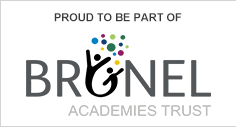Curriculum Organisation
The curriculum at The Chalet School is structured across four different pathways, each reflecting developmental stages and learning profiles of pupils functioning between 12 months and 8 years. This ensures that pupils are provided with experiences that are relevant, interesting and challenging and to identify opportunities for progression.
Some of our pupils benefit from planned repetition and ‘over-learning’ to ensure concepts can be embedded in pupils’ long-term memory and allow them to go through the cycle of exploration, realisation, anticipation, persistence and initiation.
Our four pathways address pupils’ cognitive developmental levels, while age-appropriate content ensures chronological developmental needs are met. Content and balance of each pathway is adapted as required. Some pupils may work within one curriculum pathway for several years or throughout their entire primary school years. Other pupils may move to another pathway as their skills and knowledge progress. The pathways, with the exception of Foundations Curriculum, are not defined by age, but need and cognitive developmental levels. This allows pupils to move flexibly between pathways at any point during their school life. Placement in a pathway is informed by ongoing assessment and the pupils’ development profiles.
All curriculum pathways provide a sequential framework for pupils to progress through. Pupils’ access to curriculum pathways is informed via assessment outcomes. Therefore, securing appropriateness of the pathway. Each curriculum pathway incorporates specific approaches depending on the needs of the pupils and is delivered though an engaging topic-based curriculum. The four progressive pathways at The Chalet School are:
 |
 |
 |
 |
|
The Foundations pathway is the starting point for all pupils aged 4-7 years old.
This curriculum pathway is based on the Early Years Foundation Stage – Birth to Five and Development Matters documents.
The focus is on sensory engagement, early communication, emotional regulation and physical development.
In this pathway pupils focus on the outcomes identified in Birth to Five Matters Framework using the published ranges within the seven areas of learning.
This pathway enables pupils to develop and secure the foundations of their knowledge and skills, before moving through the school. It also supports the assessment and identification of pupils for the pathway that would best suit individual pupils. |
The Footsteps pathway is based on the Early Years foundation Stage Birth to Five and Development Matters documents, with additions from the Autism Education Trust Progression Framework to further develop and focus on primary areas of need e.g. communication and interaction.
This pathway supports knowledge and skills development through immersive and continuous delivery (similar to that of the Early Years Foundation Stage model).
This pathway is for pupils who are not yet ready to access a more formal way of learning. This pathway includes clear structure and routine e.g. group time, Curiosity, Attention Autism, Intensive Interaction and learning through play. It places high importance on sensory stimulation for pupils’ development and the need for multi-sensory approaches to learning. |
The Stepping Stones pathway supports pupils who are able to access a more formal curriculum in the core subjects and are working around the End of Reception/Year 1 knowledge.
In this pathway pupils are supported to engage in the wider curriculum in a continuous learning environment.
With additions from the Autism Education Trust Progression Framework to further develop and focus on primary areas of need such as communication and interaction. Pupils in this pathway require some structured learning space within the classroom and some informal learning for continuous learning in My World, My Voice, My Emotions and My Independence. |
The Building Bridges pathway is designed to support pupils who are able to access a more formal curriculum. They are working within Key Stage 1 to Year 3 knowledge.
This pathway is supported by formal lesson structures with built in opportunities to develop My Emotions, My Voice and My Independence.
There are also additions from the Autism Education Trust and the Progression Framework to further develop and focus on primary areas of need such as communication and interaction.
Pupils will further develop their life skills through learning about money management and exploring travel. This pathway aims to equip pupils to apply and generalise skills and concepts relating to subject specific learning as well as continuing to focus on communication, their emotions as well as independence skills |





